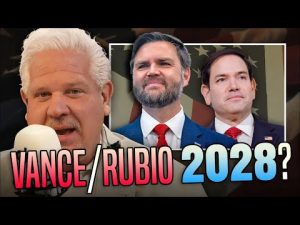In the intricate dance of global politics, it seems there are always winners, losers, and the ever-present critics who can’t wait to jump in and call out anything they perceive as a misstep. Such was the case when President Trump stepped onto the stage with China’s President Xi. House Minority Leader Hakeem Jeffries, ever eager to seize a moment, jumped in with harsh words against Trump’s dealings with China. One can almost picture him with arms crossed, shaking his head while ignoring the broader achievements on this trip. Trump, it seems, didn’t have to beg for respect or cooperation – achievements spanned a tour of Asia.
In the world of trade and tariffs, predictions often get murky. Treasury Secretary Scott Bessant, a man who has a front-row seat to the nitty-gritty details of these negotiations, dismissed the critics. The stories about the supposedly resilient Chinese economy and the shock of U.S. officials at the Chinese stance were met with a righteous eye roll. Bessant had the numbers: China’s manufacturing has been down for several months, a testament to the effectiveness of U.S. tariffs. While the detractors were busy writing doomsday scenarios, President Trump was signing trade deals left and right.
The surprise attempt by China to implement rare earth export controls didn’t catch the U.S. unprepared. Quite the opposite; it was like China brought a knife to a gunfight. By postponing their controls for a year, likely because they realized they were tackling the world with a risky move under a spotlight, the U.S. showed it could dictate terms when the stakes were high. Tariff threats remained a potent bargaining chip, a fact that perhaps got lost amidst the focus on furious media headlines.
As the conversation turned to fentanyl, the narrative was less shiny, painted with the urgency of lives at risk from the deadly opioid crisis. In what appears to be a rare moment of clarity, China committed to cracking down on fentanyl precursor shipments destined for North America. It’s now a waiting game to see if they follow through – good faith has never been a guaranteed commodity in international dealings. There are tight criteria and timelines in place to hold China accountable, meaning there’s perhaps hope yet for significant reductions in this tragic supply chain.
Meanwhile, back on U.S. soil, the Supreme Court showdown looms with its own batch of “what ifs”. The legal debates about presidential powers over tariffs seemed more like a pundit’s playground, with forecasts of potential fiscal turbulence if the court sides with Trump’s critics. Yet, the administration remains confident, armed with arguments that lean on emergency powers – a mechanism designed precisely for such high-stakes economic chess. Whether this confidence holds as steady as a promise on the campaign trail remains to be seen, but it’s clear that President Trump and his team aren’t short of energy or strategic plays in their arsenal.
In a realm where international politics mixes with domestic challenges, this dance with China hasn’t ended but has taken yet another turn. President Trump, the self-proclaimed dealmaker, is clearly still at the table, negotiating with a mindset that insists America won’t back down easily. As for the critics, perhaps they’ll continue to pontificate from the sidelines, armed with their skepticism – a reminder that in politics, there’s always an audience eager to see the underdog triumph, or in their view, the perceived overconfident leader tripped up.







